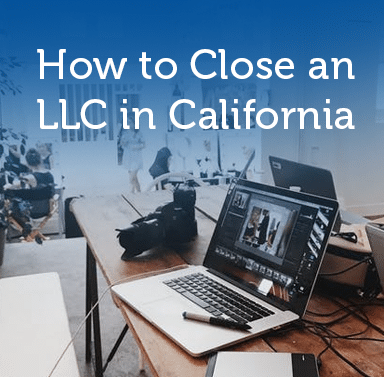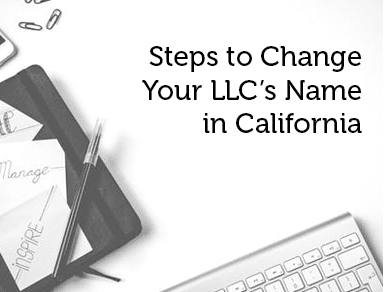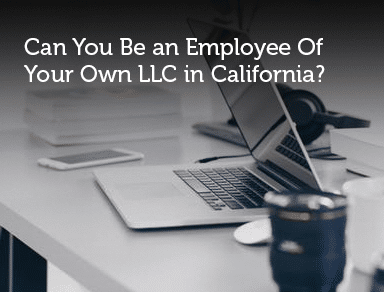More About Limited Liability Companies
Embarking on a journey to form your own business is always a mix of endless opportunities and unforeseen challenges. Being the one to call the shots may bring a sense of freedom, but you should never forget to protect your own assets and build your business with a solid financial foundation.
Alex, a graphic designer, went on a freelancing journey and faced the dilemma of whether to form an LLC. Initially viewing it as unnecessary, he realized the importance of protecting his personal assets as his business thrived. Read his story below as he faced the dilemma of putting his business’ financial security at risk. Step into his journey as a graphic designer who revolutionized his career by asking “Do I need an LLC as a freelancer?”
Freelancing and LLCs: Understanding the Key Connections
Once a thriving freelance graphic designer, Alex faced a turning point in his career. For years, Alex operated as a sole proprietor, reveling in the freedom and simplicity it offered. However, a turbulent client contract illuminated a crucial vulnerability: his personal assets were at risk. It was time for a change, a step towards security and professionalism. This decision led Alex to the doors of Incorporation Attorney, sparking a transformative journey in forming an LLC (Limited Liability Company).
Do I need an LLC as a Freelancer?: Benefits of LLCs for your business
The incorporation process was more than a legal formality; it symbolized a new era of professionalism and growth. Alex’s decision to setting up an LLC as a freelancer was not just about asset protection; it also elevated his business in the eyes of potential clients. With the new LLC status, Alex’s freelance career took a significant leap forward, bringing in more substantial projects from diverse locations. This expansion was not without its challenges, but Incorporation Attorney was there every step of the way.
Expanding across state lines, Alex found the need to register his LLC in two additional states. This was crucial for maintaining compliance and legal protection in his growing market. The expertise of Incorporation Attorney proved invaluable in navigating these complex multi-state registrations, ensuring Alex’s business was legally sound wherever his services took him.
The Financial Perk of Setting up an LLC as a Freelancer
Alex’s whole life changed with one question: “Do I need an LLC as a freelancer?” Because incorporation brought another unexpected advantage: financial clarity. Separating personal and business finances not only streamlined Alex’s financial management but also optimized his tax benefits. With diligent tracking and strategic planning, Alex maximized his tax deductions, leading to significant financial savings. The guidance from Incorporation Attorney was pivotal in understanding and applying these financial strategies effectively.
How setting up an LLC as a freelancer can transform your business
As time passed, Alex’s career interests evolved, leading him to consider a different path. This meant closing his LLC. However, this was not a decision taken lightly or executed hastily. With the support of Incorporation Attorney, Alex followed the correct dissolution procedures, ensuring a smooth and legally sound transition.
Alex’s story is a testament to the transformative power of asking “Do I need an LLC as a freelancer?”. It’s not just about legal structure; it’s about fostering growth, credibility, and financial savvy. Incorporation Attorney played an integral role in Alex’s journey, offering expertise and support at every critical juncture.
Potential Consequences of Not Forming an LLC as a Freelancer
If Alex had chosen not to form an LLC, he would have faced several drawbacks or missed opportunities that could have been significant to his freelance career.
Here are some of the key issues he could have encountered:
- Personal Liability for Business Debts and Legal Judgments: Operating as a sole proprietor, Alex’s personal assets such as his home, car, and savings would be directly at risk if his business faced any lawsuits or if he was unable to pay business debts. Forming an LLC protects personal assets by creating a legal separation between the business and the individual.
- Limited Financial Opportunities: As a sole proprietor, Alex might have found it challenging to raise capital or secure business loans. Banks and investors often perceive LLCs as more credible and structured, making them more likely to offer financing.
- Professional Credibility: Clients and partners typically view businesses structured as LLCs as more professional and stable. Without forming an LLC, Alex could have missed out on opportunities to work with clients who prefer or require their contractors to have a formal business entity.
- Tax Flexibility Issues: LLCs benefit from a choice in tax treatment, allowing them to be taxed as a sole proprietorship, partnership, or corporation. This flexibility can lead to significant tax advantages. By not forming an LLC, Alex would miss out on these opportunities, potentially leading to higher taxes.
- Difficulty in Expanding Business: As Alex’s business grew, not having an LLC could make it more difficult to expand, especially into other states. Each state has its own rules for doing business, and an LLC can provide a streamlined process for meeting these requirements.
- Challenges in Business Continuity and Transferability: An LLC can continue to operate beyond the owner’s involvement, making it easier to sell or pass on to heirs. Without this structure, Alex’s business might face continuity issues if he decided to step away or sell his business.
- Complicated Partnership Arrangements: If Alex wanted to bring in partners or investors, not having an LLC could complicate the process. An LLC provides a clear framework for managing ownership shares, profit distribution, and operational roles.
- Increased Scrutiny from Tax Authorities: Sole proprietors can sometimes face more scrutiny from tax authorities, as their business and personal finances are not separated. This could lead to complicated audits and increased tax liability.
- Lack of Privacy: In some jurisdictions, forming an LLC can offer privacy benefits by allowing the listing of the registered agent’s address instead of the business owner’s personal address. As a sole proprietor, Alex’s personal information would be more exposed in business transactions.
- Insurance Limits: While general liability insurance can offer some protection for sole proprietors, it may not cover all liabilities and risks that a business might face. An LLC, combined with the right insurance, provides a stronger safety net.
By choosing to form an LLC, Alex mitigated these risks, securing not only his business’s future but also his personal assets and peace of mind.
Should I start an LLC as a Freelancer? Contact Incorporation Attorney to find out!
For freelancers like Alex looking to elevate their business, the question ‘Do I need an LLC as a freelancer?’ was a game changer. It was a step towards professionalism, financial clarity, and legal security.
As you weigh the benefits, consider the protection it offers to your personal assets, your professional image, and the strategic advantage it provides in your business industry. And with the right guidance offered by Incorporation Attorney, it can be a seamless and rewarding process. If you want to learn more about how to set up an LLC as a freelancer, contact us here!













